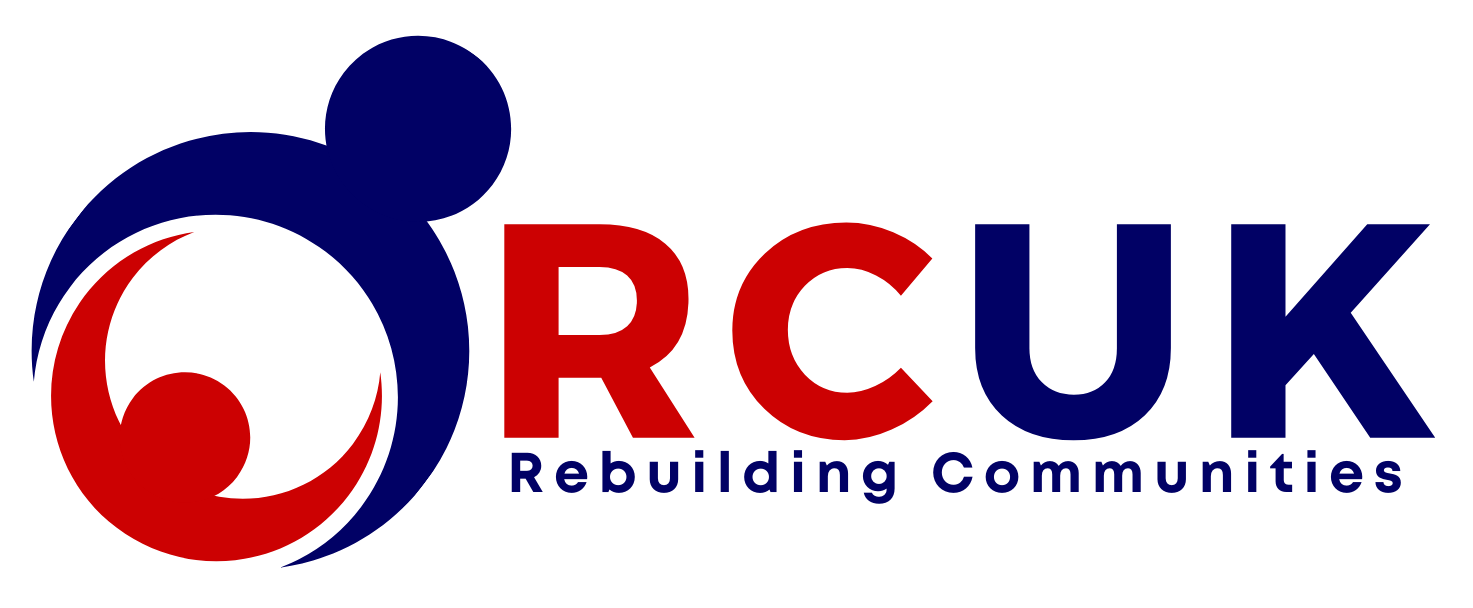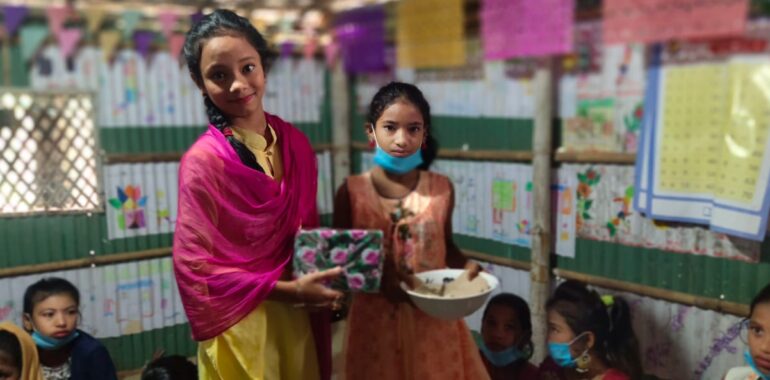Recently, members of the Rohingya Centre UK (RCUK) and international Rohingya diaspora delegates travelled to one of the world’s largest refugee camps in Cox’s Bazar, where over one million Rohingya live in 33 overcrowded camps. For us, this was not just a humanitarian visit — it was deeply personal. Many of our members lived in these camps after being forced to flee Myanmar. Some have endured this displacement since 1978 until they were eventually resettled to safety in the United Kingdom through UK resettlement programs.
Having lived this reality, we carry the memories and pain of what it means to be displaced and forgotten. But we also carry a vision for change. As we spoke with the children and youth in the camps and saw them playing amidst endless rows of makeshift shelters, one truth became heartbreakingly clear: these children — more than half of the camp population — are at risk of becoming a lost generation.
However, this does not have to be their fate. We, the Rohingya, refuse to let it be so. These children have immense potential to shape a brighter future, and it is our responsibility — as a Rohingya-led organisation and as a global community — to ensure they have the opportunities they deserve.
Rohingya-Led Solutions for a Brighter Tomorrow
At RCUK, we are not just advocates; we are leaders and visionaries working to solve our community’s persisted challenges. We are building the Rohingya Education Board, a landmark initiative led by Rohingya for Rohingya, to create pathways for education and empowerment. For the first time, the Rohingya diaspora is taking charge of its destiny, united and focused on bringing the change our people aspire to see.
We cannot do this alone. The international community must step forward to support this initiative. Education is not just a right; it is a lifeline. Every child, regardless of where they are born, deserves the chance to dream, learn, and succeed. Together, we can ensure these children grow into empowered individuals capable of building a better world for themselves and their community.
Youth in Camps: Untapped Potential
The situation for Rohingya youth in the camps is dire. More than 30 percent of the refugee population comprises young people, full of untapped energy and potential. Yet, without access to formal education, employment, or income-generating activities, they remain idle and vulnerable to exploitation or harmful coping mechanisms.
Investing in these young people is an investment in peace, progress, and sustainability. Through initiatives like RCUK’s Educate Rohingya program, we aim to provide skills, accredited education, and opportunities. These programs empower youth to transform themselves from victims of circumstance into change makers, fostering hope and cooperation within refugee and wider communities.
Harsh Realities of Camp Life
Life in the camps remains precarious. Rohingya refugees endure the effects of climate change, including heatwaves, cyclones, and floods. Women and girls are disproportionately affected by gender-based violence. Alarming reports reveal that nearly all survivors of gender-based violence in the camps are female, with physical assault and psychological abuse being the most common incidents.
Adolescent girls face the constant threat of child marriage, while boys are pushed into child labour. For many, desperate circumstances lead to perilous sea journeys in search of a better future. Growing insecurity within the camps only worsens the situation, as residents repeatedly voice their fears.
Despite these challenges, Bangladesh has shown extraordinary generosity, hosting over a million Rohingya refugees. The people of Bangladesh, despite their own struggles, have provided refuge to those fleeing violence and persecution. Their compassion deserves deep gratitude, but gratitude alone is not enough.
A Call to Action
We, the Rohingya, are no longer waiting for others to solve our problems. At RCUK, we are taking responsibility and leading the way toward sustainable solutions. The Rohingya Education Board is one such effort — a framework designed by Rohingya, for Rohingya, to deliver education and create opportunities for the next generation.
The recent UN General Assembly proposed a high-level conference to address the Rohingya crisis. We urge the UN to acknowledged and act on this proposal and call on donors, diplomats, and world leaders to support Rohingya-led initiatives like ours. This is not just about one community or country — it is about humanity and future of Rohingya population.
The children and youth of the Rohingya community look to us with hope. They are counting on us to turn despair into opportunity and transform their future. Together, we can build a future that reflects the best of humanity.
The time to act is now. Support RCUK’s Educate Rohingya initiative and join us in shaping a brighter tomorrow for these children and youth. With your help, we can move forward and make the vision of a dignified, empowered Rohingya community a reality.
Mohammed Amin is the Chief Executive Officer of the Rohingya Centre UK (RCUK). Dr. Mohammad Khubybe is the Chief Operating Officer at RCUK.

